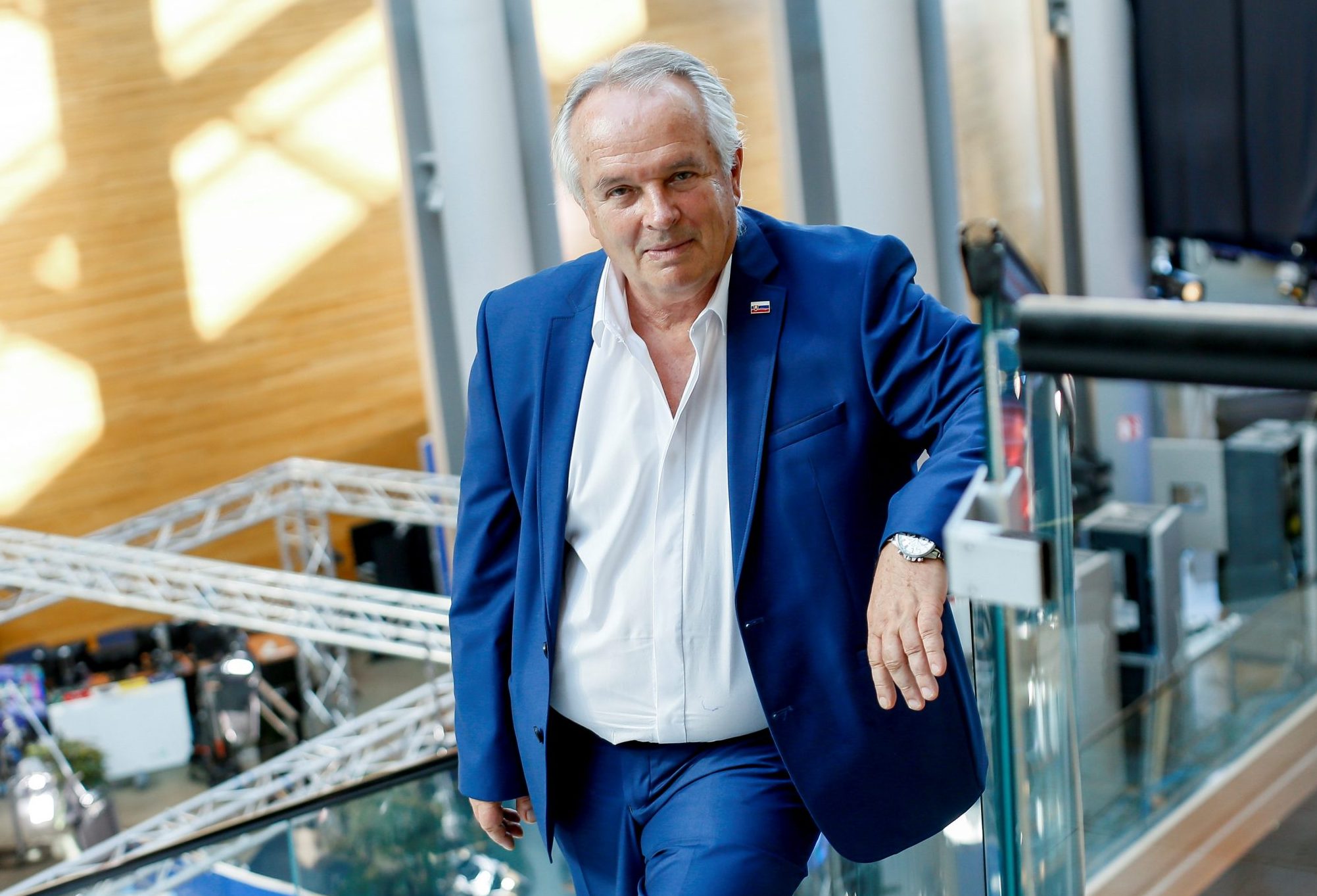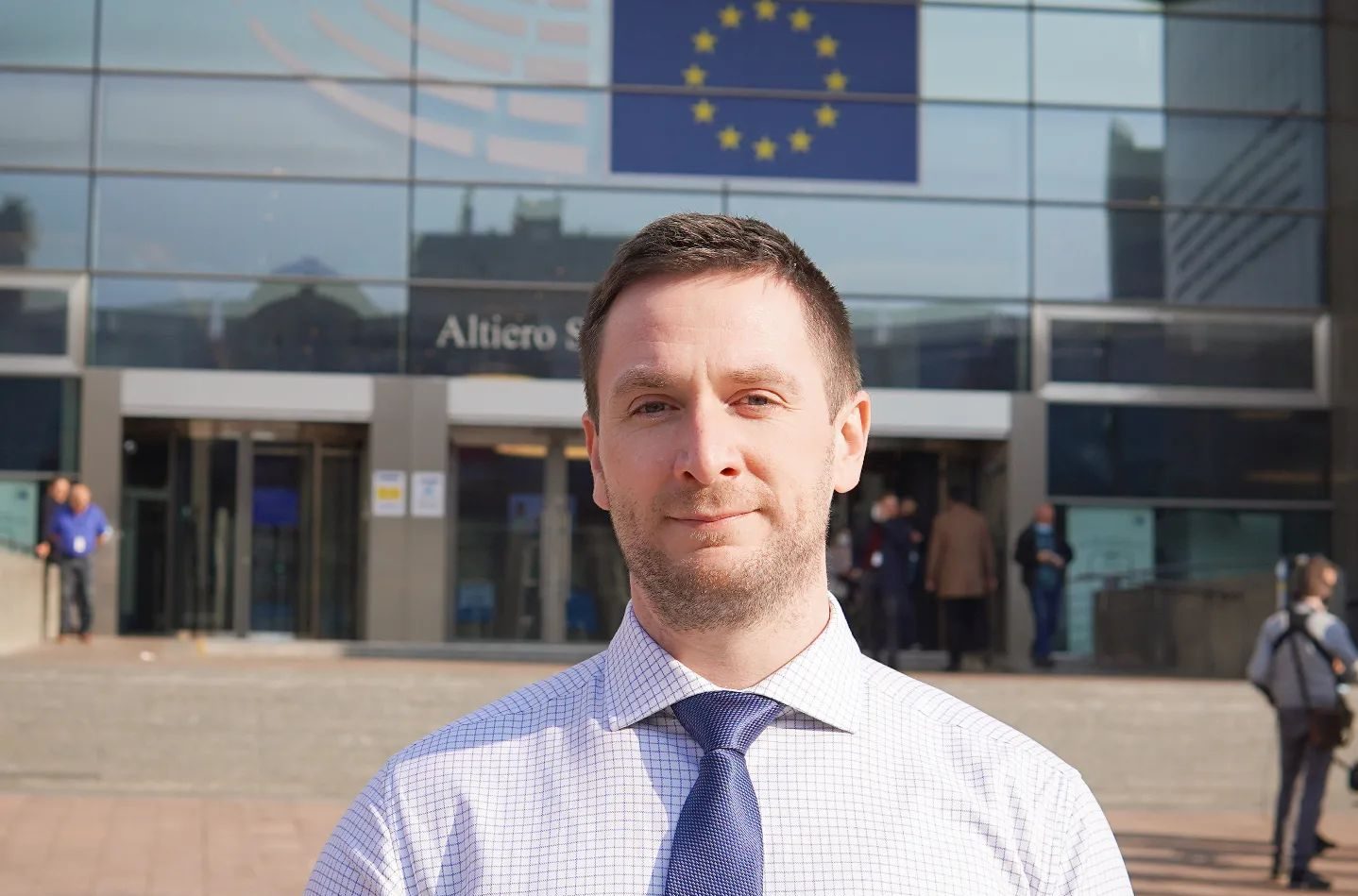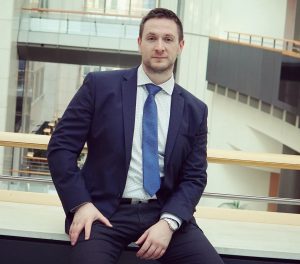
Miroslav Radačovský of the Slovak Patriot party has spoken out against Brussels' centralizing ambitions.Continue reading

Milan Uhrík is the leader of Slovakia’s national conservative political movement, Republika. The party is currently polling at 8 percent, one percent above the largest government coalition party, OLANO. We have asked the Slovak politician, who is also a member of the European Parliament, about issues concerning national sovereignty, the Visegrad 4 regional co-operation and the conflict in Ukraine.
Slovakia had found itself in a new political crisis right around the 30th anniversary of its independence. The words ‘national sovereignty’ featured prominently during the celebrations, but is the country truly sovereign in the way that the current government interprets Slovakia’s role in Euro-Atlantic structures?
The current leaders use the term ‘national sovereignty’ only as an obligatory platitude that should be heard on these occasions, such as the anniversary of our independence. In reality, however, they are doing everything against the sovereignty of their citizens and the state. Unfortunately, they perceive Slovakia’s role and membership of the structures of which we are currently a part as absolute subordination and compliance with all demands. Even those that go against our national interests.
When observing your program and communications, the Republika movement outwardly appears as a national-conservative movement. Yet the Slovak press and government officials regularly label you as “fascists”. Why does a certain degree of Euroscepticism and national sovereigntism provoke such strong reactions from the Slovak opinion elite?
Republika is a patriotic and conservative movement that has successfully started to stir up the political scene. And the opinion-forming media, the globalists and the so-called elites are worried about it. The reason is simple. They are mostly fanatical progressives who want war, guns for Ukraine, sanctions against Russia, LGBTQ ideology, migrants, and so on. If an EU member-state tries to resist them, they immediately start blackmailing them and threatening to take away their EU funds and competences. Republika rejects all totalitarian ideologies. We want peace, diplomatic solutions, good relations, equality between states, a healthy family policy and regional cooperation. Our opponents do not like that. That is why they frighten and deceive people with talk of ‘extremists’.
Although the anti-Hungarian rhetoric coming from traditional nationalist circles in Slovakia is generally receding, attacks against Budapest are increasing from new Western-type Europhiles and progressive sources. There is a huge amount of hostility coming from the Slovak media as well as from the political left. Do you think that these attacks are motivated by genuine concern about the state of democracy in Hungary?
As I said, fanatical progressives and their ‘quislings’ are not interested in democracy or the will of the people. Their motivation is to rule. That is why they will belittle, censor and destroy any competition with tendentious reporting and lies, influence opinion through media and NGO networks and support ‘related’ entities. Is the censorship of the US President on social networks perhaps an insufficient example? They will stop at nothing. In Central Europe, we will see many more attacks on any political force that wants to work for the good of the citizens, their security and the prosperity of the state.
Hungary has formulated its own position on Ukraine and, in response, the Slovak Government has joined the chorus of European condemnations accusing Budapest of undermining European unity. Do you think that the Slovak Government is balancing correctly between a sovereign foreign policy and a common European position on the war in Ukraine?
A neutral stance on the conflict, a call for peace and good relations to ensure energy security is the right balance that is needed at the moment. Because war on European soil, the destruction of ties and ineffective sanctions do not benefit either our countries or our economies. On the contrary, all of this only suits the entities that put ‘European unity’ on the front line and support the conflict from a great distance. The current representatives of the Slovak government are very far from a sovereign foreign policy.

Photo: Facebook Milan Uhrík
A few days ago, former Prime Minister Vladimir Mečiar, one of the architects of Slovakia’s independence, said in an interview that there are no political forces in the country today that could define Slovak statehood. This is a complex subject, but is he right? How would you approach this question?
At least in our cultural and political environment, statehood has been one of the most important determinants of ethnogenesis, and therefore of the resulting identity. The history of European nations confirms this. But we should also look at the domestic and international environment, which was different at the time of the establishment of the Slovak Republic than it is today. Time has moved on and new challenges await us. There are pressures that want to destroy our heritage, culture and traditions, so a new vision is needed, which can take the form of new initiatives in the economic, cultural, scientific and political fields. The only patriotic movement in Slovakia that currently has the real potential to offer and fulfill these visions is the Republika.
V4 cooperation is currently fragmented along the lines of two Europhile and two Eurosceptic governments and, of course, Ukraine. This is seriously hampering regional cooperation and Brussels seems to be exploiting it. Who is to blame for the current situation and could there be a way back to rediscovering a common ground?
Regional cooperation in Central Europe is vital in promoting our interests, as well as in protecting our citizens, families and the Central European area from security threats such as mass, illegal migration. The Europhile political forces ‘at the helm’ of some states, which are challenging the promotion of our and common regional interests, do not care about our citizens and our geographical area. The way back to rediscovering common ground will be to replace these politicians as soon as possible in democratic elections and to renew regional cooperation, at least in the V4 format.
Featured Photo: Facebook Milan Uhrík